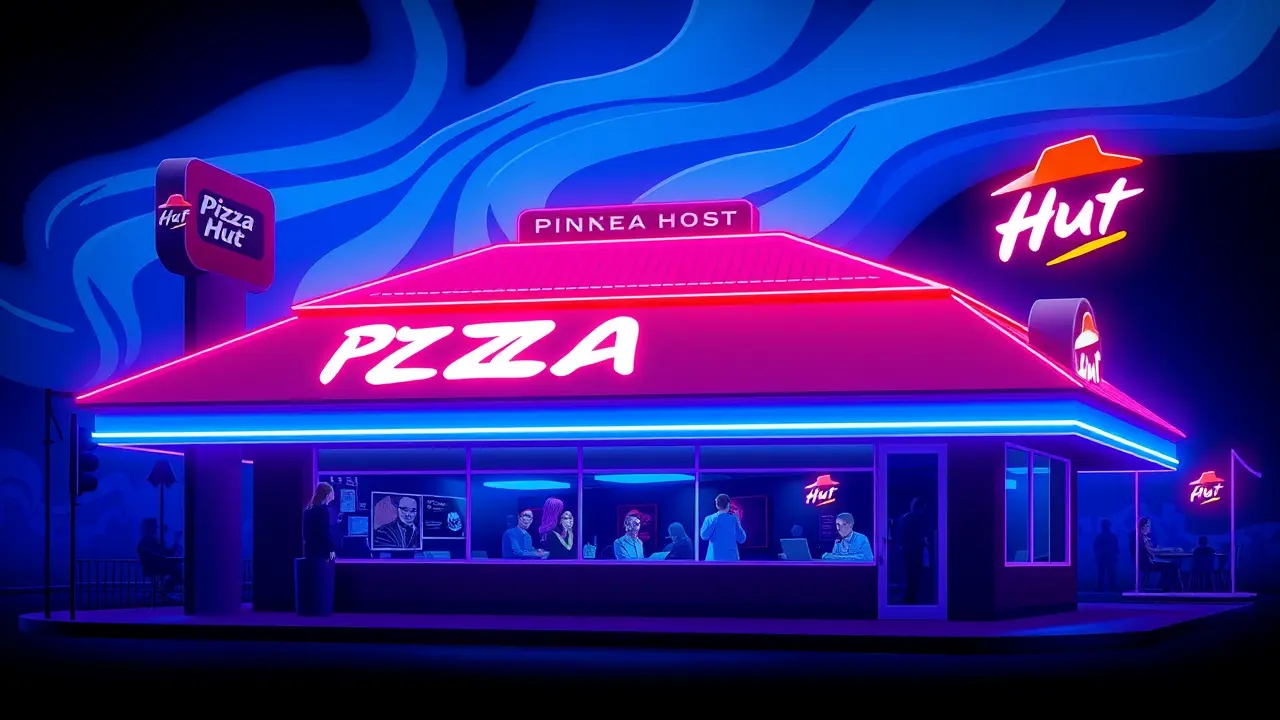
FinancestocksEarnings Reports
Yum Brands Considers Selling Struggling Pizza Hut Chain
ET
Ethan Brown
3 hours ago7 min read1 comments
Yum Brands, the fast-food conglomerate that also owns KFC and Taco Bell, has officially put its iconic Pizza Hut chain on the strategic review block, a move that signals a potential divestiture of the struggling pizza pioneer. This isn't just a routine corporate shuffle; it's a stark admission that even a brand with a nearly 20,000-store global footprint and recognition in over 100 countries can falter when it fails to adapt to seismic shifts in consumer behavior.The core of Pizza Hut's dilemma is a classic tale of legacy versus agility. For decades, the brand was synonymous with the quintessential American family treat, built around those vast, red-roofed dine-in temples where birthdays and Little League victories were celebrated.Yet, that very asset became its anchor in an era where convenience is king. While competitors like Domino's, now the world's largest pizza chain with 21,750 stores, engineered their entire business model around a hyper-efficient delivery and digital ordering ecosystem, Pizza Hut was saddled with the high overhead and operational complexity of maintaining thousands of these large, often outdated restaurants.The numbers tell a brutal story: a 7% drop in U. S.sales in the first nine months of the year, and its market share among pizza chains has plummeted from a dominant 19. 4% in 2019 to just 15.5% today, according to food service consultancy Technomic. This decline culminated in 2020 when one of its largest franchisees filed for bankruptcy and shuttered 300 locations, a clear canary in the coal mine.CEO Chris Turner's statement that Pizza Hut's potential 'may be better executed outside of Yum Brands' is corporate-speak for a fundamental misalignment. While Yum has successfully fueled growth at Taco Bell and KFC with innovative menus and marketing, the specific turnaround playbook for a beleaguered pizza chain—requiring potentially massive capital investment in store remodels, technology overhauls, and a complete brand repositioning—may be too specialized a project for a diversified portfolio manager.Think of it like a personal finance dilemma: you might be great at managing your overall investment portfolio, but if one particular asset—say, a rental property with persistent maintenance issues and declining tenants—starts dragging down your entire net worth, sometimes the most prudent financial move is to sell it to someone who specializes in turning around such properties. The market's immediate reaction, a 7% jump in Yum's stock price, is a resounding vote of confidence in this strategic pruning, suggesting investors believe the company will be leaner and more profitable without the drag of its pizza segment.So, who would buy Pizza Hut? The likely suitors are private equity firms, which specialize in taking on such complex turnaround challenges, carving out costs, and revitalizing brands before a future resale or public offering, or perhaps a strategic buyer from the restaurant space looking for an instantly scalable global brand, albeit one needing serious TLC. The challenge for any new owner will be monumental: how do you modernize a 65-year-old icon without alienating its core loyalists? It involves a painful but necessary reckoning with its real estate, likely accelerating the closure of underperforming dine-in locations in favor of smaller, delivery-optimized outlets, a digital transformation to compete on the app-based battlefield, and a menu innovation that goes beyond nostalgic breadsticks to recapture the imagination of a new generation.The parallel with Denny's, another 1950s-era dine-in icon that just announced a sale to a private investor group, is uncanny and underscores a broader crisis in the casual dining sector, where the pivot to off-premise consumption is not a trend but a permanent new reality. The story of Pizza Hut, founded in 1958 in Wichita, Kansas, by two brothers who borrowed $600 from their mother, is a poignant reminder of the American dream.Its rise to global dominance under PepsiCo and subsequent spin-off into Yum Brands was a business school case study in success. Its current predicament is now a masterclass in the necessity of perpetual evolution. For entrepreneurs and investors, the lesson is clear: no brand, no matter how storied, is immune to disruption, and the most valuable asset any company can have is not its past glory, but its capacity for relentless adaptation.
#featured
#Yum Brands
#Pizza Hut
#strategic review
#potential sale
#restaurant industry
#earnings
#Domino's
Stay Informed. Act Smarter.
Get weekly highlights, major headlines, and expert insights — then put your knowledge to work in our live prediction markets.
Related News
© 2025 Outpoll Service LTD. All rights reserved.














